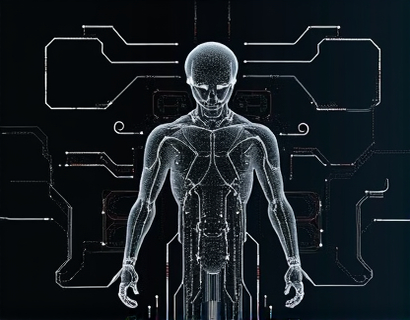AI Certification Evolution: Navigating Recognition in the Digital Age
The rapid advancement of artificial intelligence (AI) has transformed various industries, creating a demand for professionals who can navigate, implement, and manage AI technologies effectively. As AI continues to evolve, the need for structured and recognized certifications has become paramount. These certifications serve as a bridge between technical proficiency and professional validation, ensuring that individuals and organizations can demonstrate their expertise and commitment to continuous learning. This article delves into the evolution of AI certification, the importance of specialized accreditation, and how these credentials are reshaping the digital landscape.
The Need for AI Certifications
The integration of AI into the workforce has brought about significant changes in job roles and requirements. Traditional skills are being augmented or replaced by AI-driven tools, making it essential for professionals to upskill and reskill. AI certifications provide a formal acknowledgment of an individual's ability to work with AI technologies, from foundational concepts to advanced applications. These certifications are crucial for several reasons:
- They validate an individual's knowledge and skills in AI, ensuring that they meet industry standards.
- They enhance employability by providing a clear indicator of a candidate's capabilities to potential employers.
- They foster a culture of continuous learning, encouraging professionals to stay updated with the latest AI trends and technologies.
In an era where AI is becoming increasingly integral to business operations, certifications serve as a trusted mark of competence, helping professionals stand out in a competitive job market.
Specialized Accreditation: Tailoring Certifications to Task Mastery
Traditional certifications often provide a broad overview of a subject, which may not fully capture the depth of expertise required in specialized AI roles. Specialized accreditation addresses this gap by offering certifications that focus on specific tasks, technologies, or domains within AI. These tailored credentials ensure that professionals can demonstrate their mastery in areas such as machine learning, natural language processing, computer vision, or AI ethics. The benefits of specialized accreditation include:
- Targeted Learning: Certifications are designed to cover specific areas, allowing learners to focus on the most relevant skills for their career paths.
- Enhanced Credibility: Specialized credentials are highly regarded in the industry, as they indicate a deep and practical understanding of the subject matter.
- Career Advancement: Professionals with specialized certifications are often preferred for advanced roles or leadership positions, as they demonstrate a higher level of expertise.
For instance, a certification in AI-driven data analysis equips professionals with the skills to effectively use AI tools for data interpretation and decision-making, a critical skill in data-intensive industries.
Educational Milestones and Continuous Learning
AI certifications are not just about passing a test; they are a journey of continuous learning and professional development. These certifications often include multiple levels or modules, each representing a significant educational milestone. This structured approach ensures that learners progress from foundational knowledge to advanced applications, fostering a deep and comprehensive understanding of AI technologies. Key aspects of this educational framework include:
- Foundational Courses: These courses cover the basics of AI, including key concepts, algorithms, and frameworks. They are essential for building a solid groundwork.
- Intermediate Modules: These modules delve deeper into specific areas such as machine learning models, deep learning, and AI ethics. They bridge the gap between theory and practical application.
- Advanced Specializations: For those looking to excel in niche areas, advanced specializations offer in-depth training and hands-on projects. These certifications are highly valued in the industry for their specialized focus.
By completing these educational milestones, professionals can demonstrate their commitment to ongoing learning and their ability to adapt to the rapidly changing AI landscape.
Recognition and Validation in the Digital Age
The digital age has transformed how credentials are perceived and utilized. In the past, certifications were often seen as supplementary to traditional education. However, with the increasing complexity and specialization of AI, these credentials have become a primary indicator of a professional's capabilities. Employers and educational institutions are increasingly recognizing the value of AI certifications, viewing them as a reliable measure of a candidate's or student's expertise. This shift in perception is driven by several factors:
- Industry Demand: Companies are looking for professionals with specific AI skills to drive innovation and maintain a competitive edge.
- Standardization: Reputable certification bodies ensure that credentials meet industry standards, providing a consistent benchmark for evaluation.
- Lifelong Learning: The concept of lifelong learning is gaining traction, with certifications serving as a formal recognition of continuous education and skill development.
Professional validation through AI certifications not only enhances individual career prospects but also contributes to the overall advancement of the field. As more professionals obtain these credentials, the industry benefits from a higher collective skill level and a more robust talent pool.
Embracing the Future of Professional Validation
The future of professional validation in the AI era is closely tied to the evolution of certification platforms and the recognition of specialized accreditations. These platforms are at the forefront of innovation, offering cutting-edge certifications that reflect the dynamic nature of AI. Key trends shaping the future include:
- Micro-Credentials: Short, focused certifications that allow professionals to quickly acquire specific skills without a long-term commitment.
- Blockchain-Based Verification: Utilizing blockchain technology to ensure the authenticity and tamper-proof nature of certifications, providing an additional layer of trust.
- AI-Powered Assessments: Leveraging AI to create adaptive and personalized assessments that accurately measure a candidate's abilities.
These innovations not only enhance the credibility of certifications but also make the learning and validation process more accessible and efficient. For individuals, this means more flexible and cost-effective ways to upskill and reskill. For organizations, it means a more reliable and streamlined process for evaluating and hiring top talent.
Conclusion
The evolution of AI certification is a testament to the field's growth and the industry's commitment to excellence. Specialized accreditation plays a crucial role in this evolution, providing tailored credentials that reflect true expertise and commitment to continuous learning. As the digital landscape continues to change, these certifications will remain a vital tool for professionals and organizations alike, ensuring that they stay ahead of the curve and meet the demands of the modern AI-driven world. Embracing these certifications is not just a strategic advantage but a necessity for success in the AI era.










































